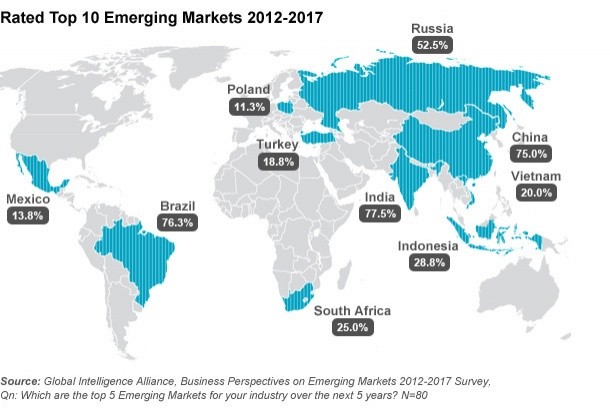Emerging markets
Post on: 16 Март, 2015 No Comment

U.S. investors who have ventured overseas lately have not been rewarded. China is slowing. Brazil is buckling from lower commodity prices. The eurozone could crack. And Russia, starting last year with the conflict with Ukraine, has been in a downward spiral for months that falling oil has only worsened.
For Mark Mobius, this spells opportunity. Mobius, who oversees $41 billion as executive chairman of Franklin Templeton’s emerging-markets group, says there are always concerns with investing overseas. He should know. Mobius, 78, has been hunting undervalued investments around the globe for decades, and, if anything, he thinks things are more stable now than in the past. Calling from São Paulo after a stop in Singapore, Mobius spoke to Fortune about why and where he is finding opportunity in some of the places that make investors most fearful right now. Edited excerpts:
You recently tweeted a chart showing that stocks in emerging markets are roughly 40% cheaper than those in developed markets. But aren’t they also much riskier?
It depends on what countries you are talking about. Brazil seems to have a lot of risk. But then you have places like India and China that are doing quite well. And even in Russia, each and every time the political environment changes, you can make a hell of a lot of money buying in at a low price.
But with the U.S. economy improving, does it make sense for investors to be venturing overseas?
When we started investing in Brazil, hyperinflation was running at 2,000%. Now it’s in the single digits. There are always problems. But the reason you are seeing more negative headlines is that transparency is increasing dramatically because of the Internet and cellphones. This is forcing political change and reform, which is a positive.
In December you said you were bullish on China and oil companies. Neither bet has performed well since. Bad call?
Not really. Given how much oil prices have fallen, the diversified oil companies, like Petrobras PZE in Brazil or China’s CNOOC, haven’t really been hit that badly. The exploration and production side of their business is only one part of what they do. And they are paying good dividends, which we expect to continue. In some ways lower oil prices are helping these companies. Petrobras, for example, used to have to import oil at a loss in order to meet government subsidy requirements. Now with the decline in prices, it doesn’t have to do that. So while international oil prices are falling, prices at the pump in Brazil are actually going up.
But won’t lower oil prices hurt those companies over time?
I think oil prices will come back up. Demand globally is not going down. You’ve got a billion people in China and a billion people in India who are getting wealthier and buying cars and motorcycles and flying places. They need oil.
Are you still bullish on China, despite the slowdown there?
If you look at the big picture, per capita income continues to rise, and housing sales continue to rise. Growth is coming down, but it’s a bigger economy, where smaller percentage changes in dollar terms have bigger impact. There is no question that there are ghost cities in China. But there’s still a tremendous shortage of quality housing. The problem is that a lot of the developers were building prospectively, and they were building high-priced housing. That’s changing now. They’re waking up to the reality that they need more affordable housing, and the speculators are not as active as they were in the past.

The U.S. economy is strengthening. Do you like U.S. stocks?
Unfortunately a lot of them have run up too much. We are looking at companies that are exposed to emerging markets. In Europe, Unilever UN is a company we like because over 50% of its sales are in emerging markets.
Any specific countries you think are a better bet than others in emerging markets right now?
South Korea is interesting. The dominance of the big conglomerates is weakening. The government is doing its best to support the small- and mid-cap sector, and that is having a positive impact on the economy. Besides that, there is a lot of technology in Korea that’s been developed over the years that is paying off. And of course the proximity to China and the market penetration in China of Korean companies are really helping them as well. We like AmorePacific, which is the largest cosmetics company in South Korea.
And you’re bullish on Russia too?
There’s no question that Russian stocks are quite cheap. Many of the companies are very well run and have excellent management. We hold energy companies Lukoil and Gazprom, and Sberbank, which is the biggest bank in Russia. They have issues. For instance, Sberbank is owned by the government and may be forced to make policy loans. Same thing with Gazprom, which is sometimes used as an instrument on the policy front. But Russia’s companies are generally run like commercial organizations. The problem is many of our funds are based in the U.S. If the sanctions are increased, you may have a situation where you can’t get out. So we are still there, but it’s very tough to add right now.
This story is from the March 1, 2015 issue of Fortune.














